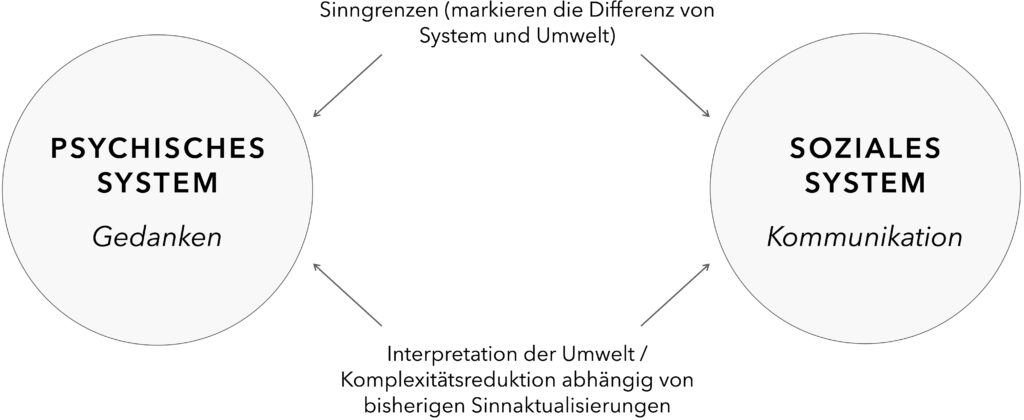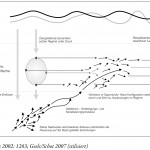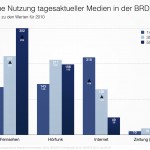9. Juli 2015
In den Social Movement Studies (Journal of Social, Cultural and Political Protest) ist nun der Artikel »Masses, Crowds, Communities, Movements: Collective Action in the Internet Age« von Ulrich Dolata und mir erschienen (Authors Version).

Quelle: Flickr (Thomas Hawk)
This article investigates two questions: One, how might the very differently structured social collectives on the Internet – masses, crowds, communities and movements – be classified and distinguished? And two, what influence do the technological infrastructures in which they operate have on their formation, structure and activities? For this we differentiate between two main types of social collectives: non-organized collectives, which exhibit loosely-coupled collective behavior, and collective actors with a separate identity and strategic capability. Further, we examine the newness, or distinctive traits, of online-based collectives, which we identify as being the strong and hitherto non-existent interplay between the technological infrastructures that these collectives are embedded in and the social processes of coordination and institutionalization they must engage in in order to maintain their viability over time. Conventional patterns of social dynamics in the development and stabilization of collective action are now systematically intertwined with technology-induced processes of structuration.
zum Artikel »
22. Juni 2015
Nachdem an dieser Stelle vor gut einem Jahr auf Hartmut Essers lesenswerte Persiflage »Der Doppelpaß als soziales System« hingewiesen worden ist, folgt nun eine kleine Sammlung an Aussagen zu Sport und Spiel von Niklas Luhmann selbst:
Weiterlesen »
10. Juni 2015
Mittlerweile ist er erschienen – der Sammelband zum 13. Mediensymposium in Zürich, auf dem ich u.a. auch den Anfang 2015 leider verstorbenen Kurt Imhof kennenlernen durfte, der mich in vielerlei Hinsicht tief beeindruckt hat.
Der Band trägt den Titel »Demokratisierung durch Social Media?« (Springerlink) und diskutiert nach einem pointierten Aufschlag von Kurt Imhof * entlang dieser Fragestellung vier Themenfelder:
- Politik im Web 2.0: Angebot, Nachfrage, Wirkungen (mit Beiträgen u.a. von Kurt Imhof, Alexander Haas, Gerhard Vowe, Frank Esser);
- Politische Kampagnen und politisches Marketing in den Social Networks (u.a. mit Christian Wassmer, Otfried Jarren, Manuel Wendelin, Hans-B. Brosius);
- Shitstorms und Fanpages als themenzentrierte Öffentlichkeit (mit Beiträgen u.a. von Marlis Prinzing, Uta Russmann);
- Interdependenzen zwischen Informationsjournalismus und Social Media (mit Beiträgen u.a. von Rüdiger Steinmetz, Birgit Stark, Jan-Felix Schrape, Mark Eisenegger).
* »Mythen sind wichtige Forschungsgegenstände in der Geschichtsschreibung […], sie sind elementar bei der religionssoziologischen und -ethnologischen Rekonstruktion von gemeinschaftskonstitutiven Sinnstrukturen […] und sie beschäftigen die Soziologie und Psychologie von Liebesbeziehungen, weil diese dazu neigen, den Zufall ihrer Genese als Fügung zu verklären. Problematisch in der Wissenschaft ist es allerdings, wenn Mythen keine Objekte der Forschung sind sondern diese anleiten.«
21. Mai 2015
Medien prägen die gesellschaftliche Kommunikation; jegliche Dienste oder Plattformen im Netz bringen in ihre technischen Spezifikationen bereits eingeschriebene Regeln, Normen bzw. Handlungsorientierungen mit und strukturieren dadurch soziales Verhalten wie Handeln. Aber sie determinieren es nicht, sondern können je nach Kontext ganz unterschiedliche Aneignung erfahren.

Diese Verschiedenheit der soziokulturellen Aneignung vor Augen zu führen ist das Ziel einer vergleichenden Studie unter der Leitung des Anthropologen Daniel Miller, der – wie es Die Zeit formuliert – »den Menschen nicht als Opfer seiner Technik […], nicht als unmündigen User, als Spielball der Großkonzerne« ansieht, sondern die Spielarten der alltäglichen Verwendung des Social Webs (und damit auch von Mobile Devices) in den verschiedenen Weltregionen untersuchen will.
Weiterlesen »
6. Mai 2015
Am 1. Juni findet die durch das Institut für Technikfolgen-Abschätzung der Österreichischen Akademie der Wissenschaften ausgerichtete Konferenz TA 15 unter der vielversprechenden Überschrift »Zukunft | Macht | Technik« in Wien statt:
Ob Pläne, Prognosen, Szenarien oder Visionen: Aussagen über die Zukunft verweisen auf die Gegenwart, ihre Potentiale und Defizite. Gleichzeitig setzen sie voraus, dass heutige Entscheidungen zukünftige Handlungsbedingungen beeinflussen können. […] Bilder von möglichen (alternativen) Zukünften sind nötig, um heute Handlungsoptionen zu entwickeln, deren mögliche Folgen zu bewerten und rationale Entscheidungen zu treffen. Gerade weil sie bereits in der Gegenwart handlungsleitend sind, können solche Bilder einerseits Konflikte auslösen, andererseits einen Beitrag zu ihrer eigenen Realisierung leisten […]. Der wechselseitige Einfluss von (imaginierten) Zukünften und der gegenwärtigen Gestaltung gesellschaftlicher und technologischer Rahmenbedingungen wird Gegenstand der TA15 sein.
Konkret geht es nach den Keynotes von Armin Grunwald und Leena Ilmola-Sheppard (siehe Programm) u.a. um die Themenfelder Technikutopien, Big Data, die Bedeutung von Zukunftsbildern für die Gegenwart, Vision Assessment und die Gegenwart der Vergangenheit (vgl. auch »Heute ist die Zukunft von Gestern«).
15. April 2015
Harald Welzer (57), ein stets auf massenmediale Anschlussfähigkeit bedachter Sozialpsychologe, macht sich in einem Interview mit der Berliner Zeitung Gedanken zum »digitalen Totalitarismus« und gibt dabei u.a. Hans Magnus Enzensberger und seinem vielkritisierten Boykottaufruf argumentative Rückendeckung:
»Wir gefährden die Demokratie, wenn wir die Grenzen zwischen öffentlich und privat aufheben, sei es mutwillig oder nachlässig. […] Die entscheidende Verwandtschaft zwischen politischem und digitalem Totalitarismus liegt in der Zerstörung der Privatheit, die das Individuum schutzlos macht. Günther Anders hat dazu schon in den 60er Jahren gesagt, ›der Einzelne ist das erste besetzte Gebiet‹. […] Nun war die Privatheit aber noch nie in der Geschichte, in keiner der totalitären Gesellschaften, so im Verschwinden begriffen, wie das heute der Fall ist. […]
Wir bejubeln jede beschissene App oder den Fernseher, der auf Sprachkommandos reagiert. Aber zugleich sind wir empört über Angriffe auf unsere Privatsphäre, obwohl wir den Angreifern Tür und Tor öffnen. […]
Hans Magnus Enzensberger hat dazu gesagt, es sei ganz einfach, sich dem digitalen Totalitarismus zu entziehen: Smartphone wegwerfen, den Internetzugang kappen, E-Mail-Korrespondenz einstellen. Dafür erntete er dann viel Hohn und Spott. […] Aber ich finde, er hat völlig Recht. […] Widerstand kostet. Schlimmstenfalls das Leben, wie wir aus der Geschichte wissen. Uns hingegen erscheint es schon als zu teuer bezahlt, wenn wir auf Whatsapp verzichten sollten. Obwohl wir wissen, dass wir uns mit jeder Message einer Totalüberwachung ausliefern. Enzensberger hält dagegen und sagt: Wir können etwas tun, wir müssen nur wollen.«
Weiterlesen »
2 Kommentare
21. März 2015
Aus dem Online-Sammelband »Digitalisierung und Medienkonvergenz. Konsequenzen für Individuum und Gesellschaft«. IfBM, Fernuniversität in Hagen 2015.
Die Verschmelzung verschiedener Medien- und Kommunikationskanäle wurde bereits in den 1980er Jahren diskutiert und mit der Etablierung des World Wide Web ab Mitte der 1990er Jahre haben sich entsprechende Prognosen auf technischer Ebene zeitnah bestätigt. Erst mit dem Siegeszug leicht zu bedienender internetfähiger Mobile Devices ab 2007 und der Verbreitung von Breitbandanschlüssen ist das Konzept der Medienkonvergenz allerdings auch in der Alltagswirklichkeit angekommen […].
Die Abrufgeräte erscheinen zunehmend austauschbar und die technische wie inhaltliche Konvergenz der Medienformen wird zur Normalerfahrung. Dabei spricht einiges dafür, dass sich die zentralen Schnittstellen für die Kommunikation wie auch den Abruf von Medieninhalten aus dem non-proprietären World Wide Web mehr und mehr auf die geschlossenen Plattformen des mobilen Internets verlagern, die bislang von einer kleinen Zahl international dominierender Konzerne kontrolliert werden […].
Vor diesem Hintergrund werden zunächst die bis dato beobachtbaren Markt- und Machtstrukturen auf dem Feld der Mobile Apps und Devices skizziert, um daran anknüpfend die erweiterten Anforderungen an die individuelle Daten- und Informationskompetenz im Zeitalter der mobilen Medienkonvergenz zu diskutieren.
Weiterlesen »

OJ Fawahl, Flickr

















